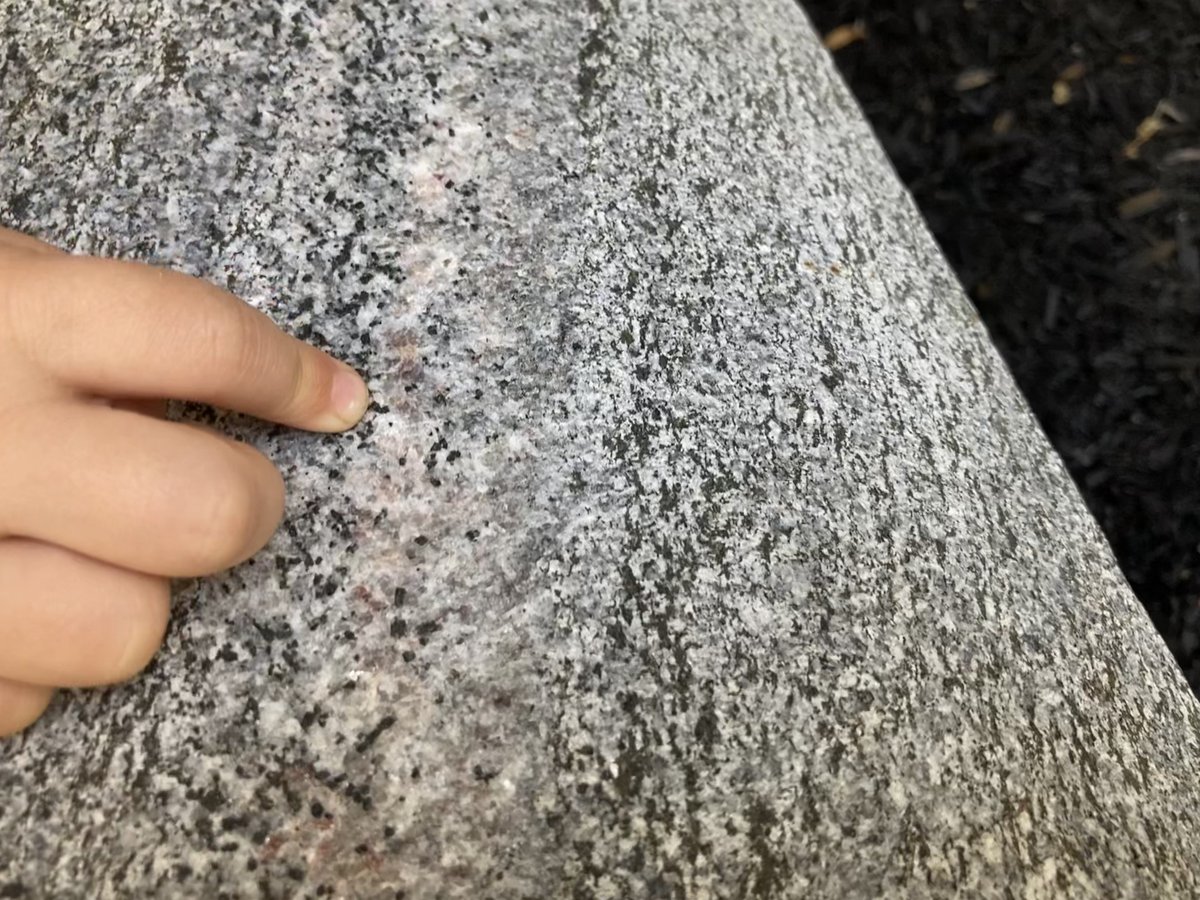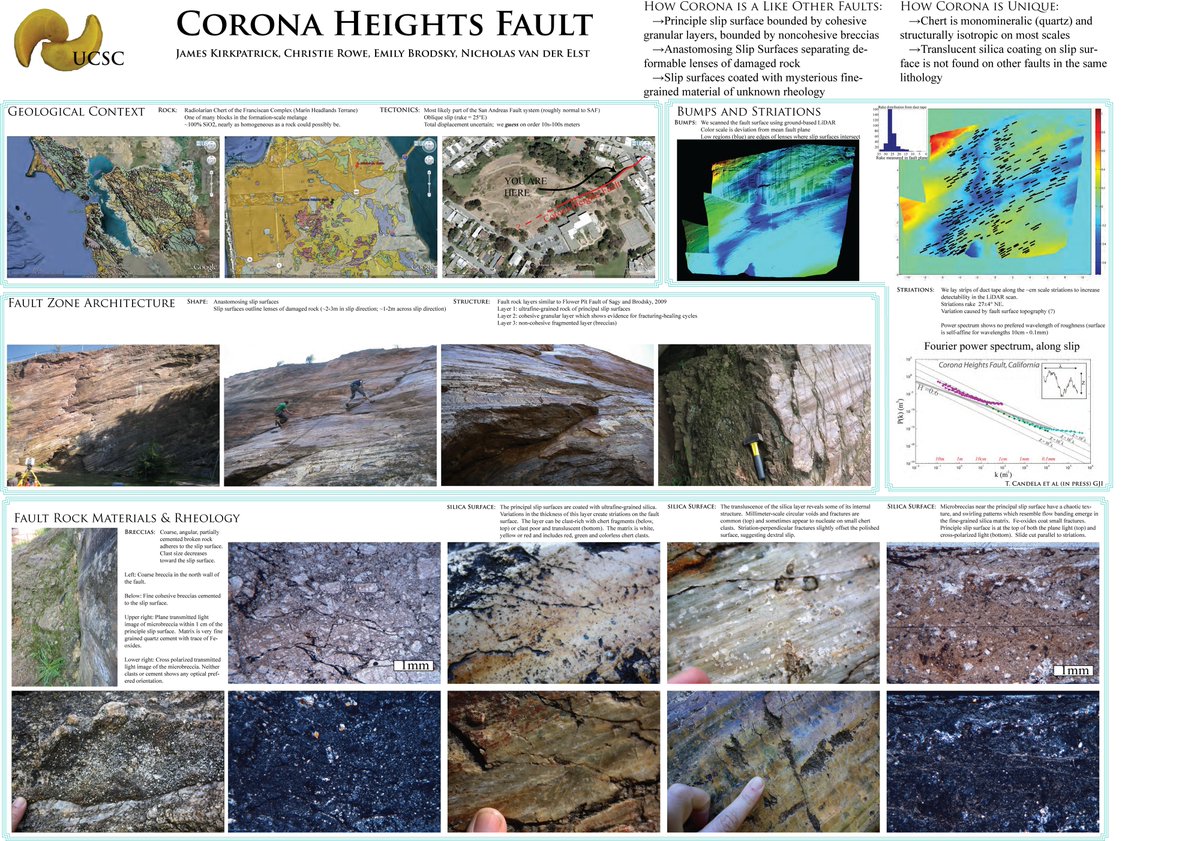I'm trying to hear what everyone is saying, but feeling threatened by all the testimonials saying we don't need geological field experiences as part of a geologist's education. I'm afraid that we are already losing our ability to train field specialists. there's no 1 size 4 all
My professional niche is based in translating field observations for other earthquake scientists (experimentalists, geophysicists, etc) and without extensive field experience (classwork, research, teaching) I would not be able to do this. My students are trained in same .
A little bit of field experience can go along way and there is no specific field experience that every earth scientist, or even every geologist needs. those of us who value field training (professionally, and in my case at least, emotionally, culturally) need to adapt and honour
all the concerns and especially bad experiences that have been raised. Forcing people into field camp is not the way, obviously. but there are some people (lots of economic geologists for example) who really benefit in their careers from long, immersive, remote field training
and i don't want to see field camps die out. Part of that training involves outdoors skills and it is not fair to send somebody to a backcountry research or exploration job who have only mapped on day trips before without the experience of doing work in a damp cold tent.
I am hoping we can work out a way to keep that training available (even affordable?) for what is now a minority of earth science students who want it. Semester-time field methods courses with minimal extra time trips are a stepping stone that can provide cognitive skills training
similar to field camp but not everybody slings Brunton for their whole life. A few of us do! And as I'm sure anybody can tell you, watching somebody else sling Brunton is a start on preparation to being able to sling Brunton yourself but it doesn't get you the whole way
to being able to do it yourself. I'm not talking about being able to take a measurement, I'm talking about deciding what to measure and measuring it properly. It just takes a ton of practice. There are lots of other tiny skills that together define a competent field geologist
Hoping that we can move forward by acknowledging that all the concerns and complaints are 110% valid and EVERYBODY'S problem, now how can we most effectively teach the people the things they need to know? All the people who are all different?
To refer back to other twitter conversations of recent days -- field geologist is one kind of geologist but there are many others kinds. I think people who specialize in field observations are rare, many do field work but are not specialized in it, and for many, the amount
Of field work they do depends a lot on what else is going on in their lives. I have a young kid now so even though I am still a field specialist my field time is reduced for a few years until he becomes useful.... as a field assistant
Being a field geologist is part of my self-image, and reducing field time is a difficult compromise (see @geolizzy 's excellent and heart-tugging thread on this issue). I'm grateful to work with excellent geologists (with field, lab, and computational skills) who bring me fresh
new interesting complicated magical observations to ponder to keep my brain in the game while I'm not in the field. Geological discovery requires an ecosystem of skilled people - my most treasured scientific experiences relied on insights from my geochemist friend Jodie Miller,
My rock mechanics friend Heather Savage, my seismologist friends, my modeler friends, people who think of the world as the outcome of equations, people who think about diffusion in crystal lattices, people who operate delicate and expensive equipment that I don't understand
To pretend that any one of our fields is superior, or not dependent on all the others, is folly! NONE OF US KNOW HOW THE EARTH WORKS and the only way out of the dark is through communication and collaboration between all the geologists and earth scientists of all specialties.
That said, I do wish that my colleagues from other, non-field disciplines would come for a visit to some rocks and see the complexities and difficulties and opportunities of field observations and interpretations themselves. I think it would make communication easier.
To that end, many "Fault Parties" have been held on a pleasant San Francisco afternoon in December @theAGU. A modeler who thinks of faults in cross section walked up to the slickenside and said "so where's the fault"? That day I felt like we did something important.
I wonder if this kind of popularized, accessible, cross-disciplinary "parties" might be a nice way to help people who have lost their admiration for their intellectual neighbors to reconnect with the network of science. #subtweet

 Read on Twitter
Read on Twitter



